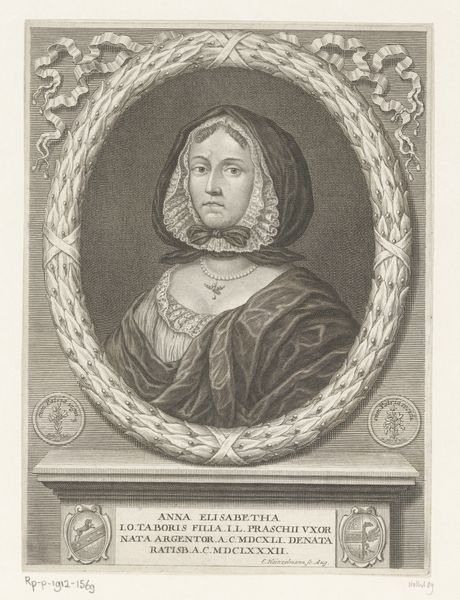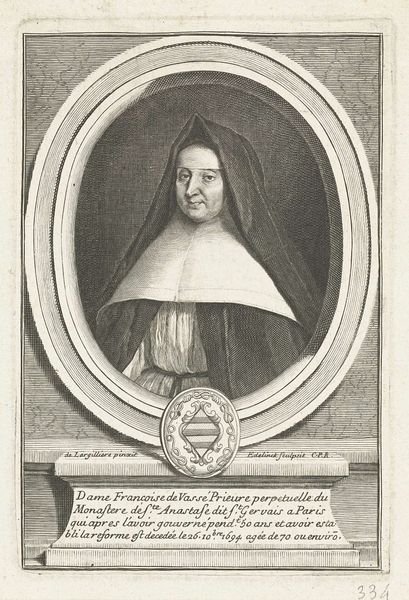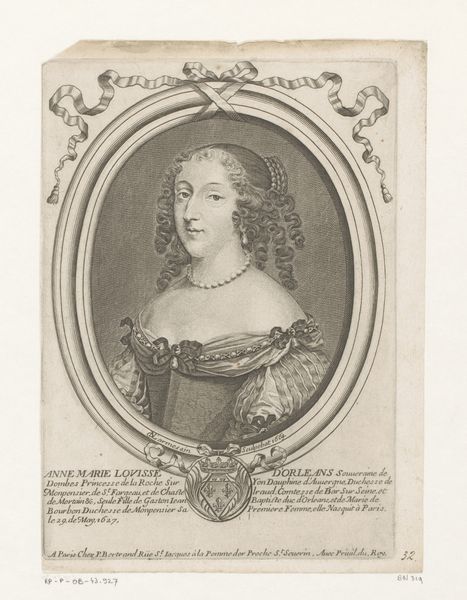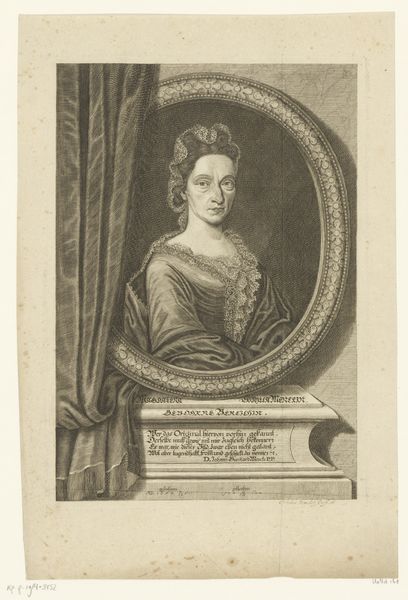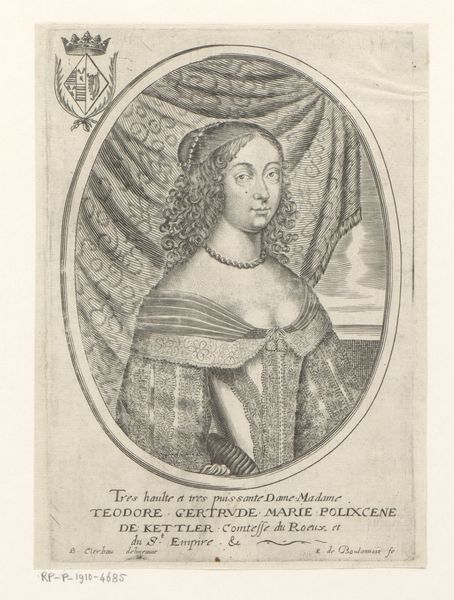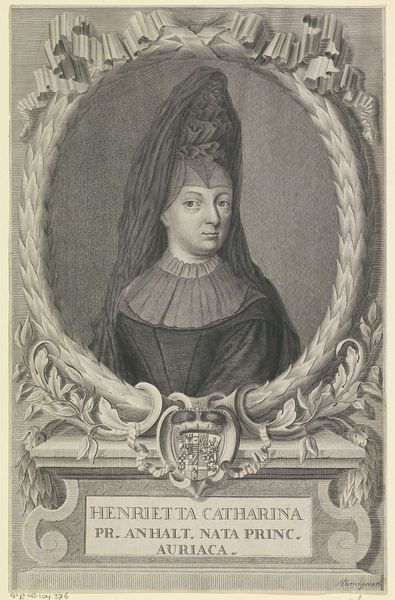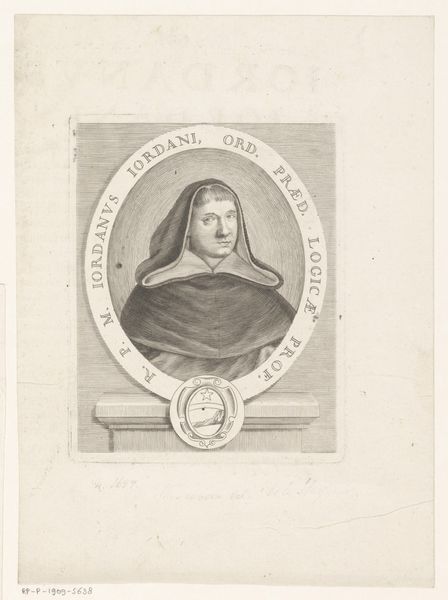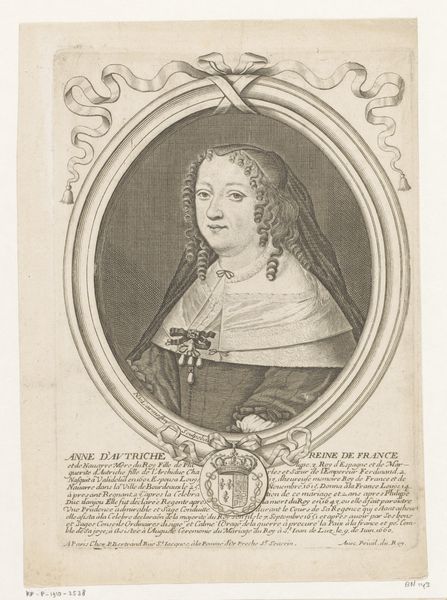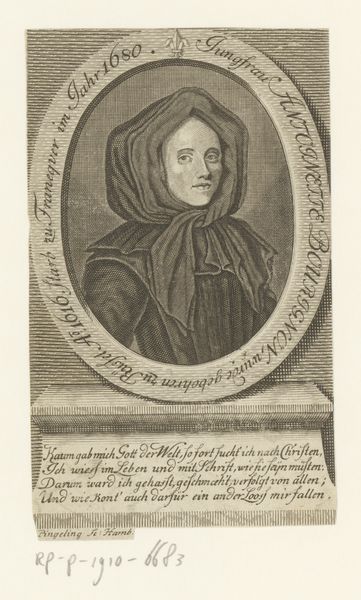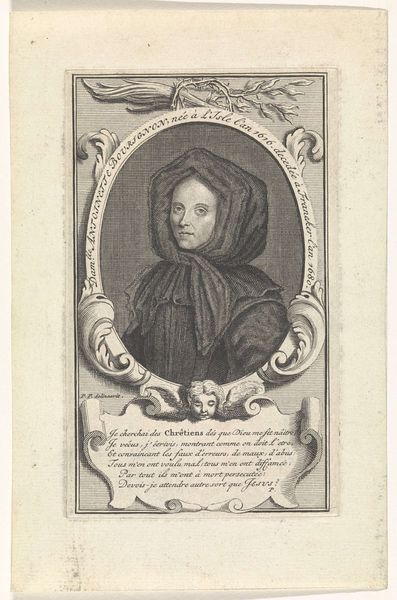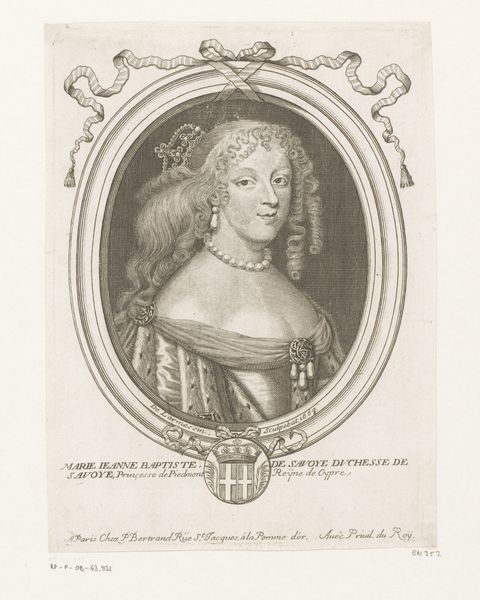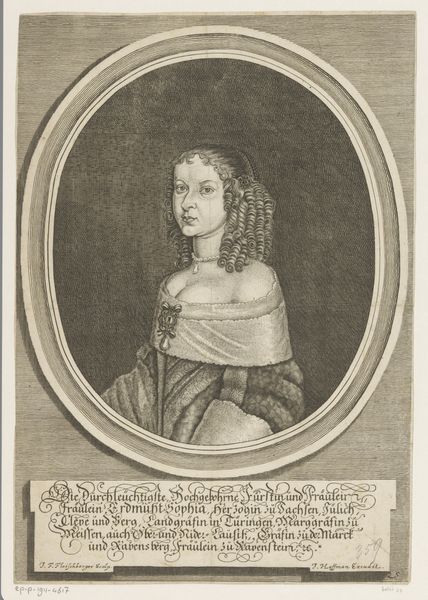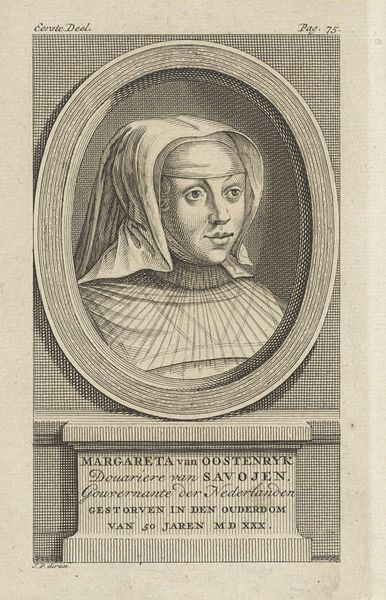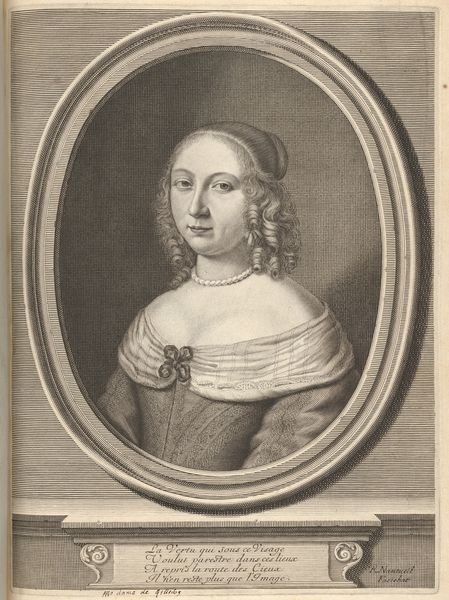
print, engraving
#
portrait
# print
#
caricature
#
history-painting
#
academic-art
#
engraving
Dimensions: height 148 mm, width 97 mm
Copyright: Rijks Museum: Open Domain
Gaetano Vascellini created this portrait of jurist Accursius using a printing technique, likely etching or engraving. Look closely, and you'll see how the image is built up from a multitude of tiny lines, each carefully incised into a metal plate. The density and direction of these lines create areas of light and shadow, defining the form of Accursius’s face and clothing. This was a labor-intensive process requiring considerable skill and patience. The etcher acted as a translator, mediating between the original image and the final print. In Vascellini’s time, prints like these played a crucial role in disseminating knowledge and culture. They were a relatively affordable way to reproduce images and make them accessible to a wider audience. Consider the social implications of this shift from unique, hand-made artworks to mass-produced images. It reflects a changing economy, one in which skilled labor was increasingly directed towards reproduction and distribution. In understanding this print, we can appreciate how it blurs the lines between art, craft, and commerce.
Comments
No comments
Be the first to comment and join the conversation on the ultimate creative platform.
